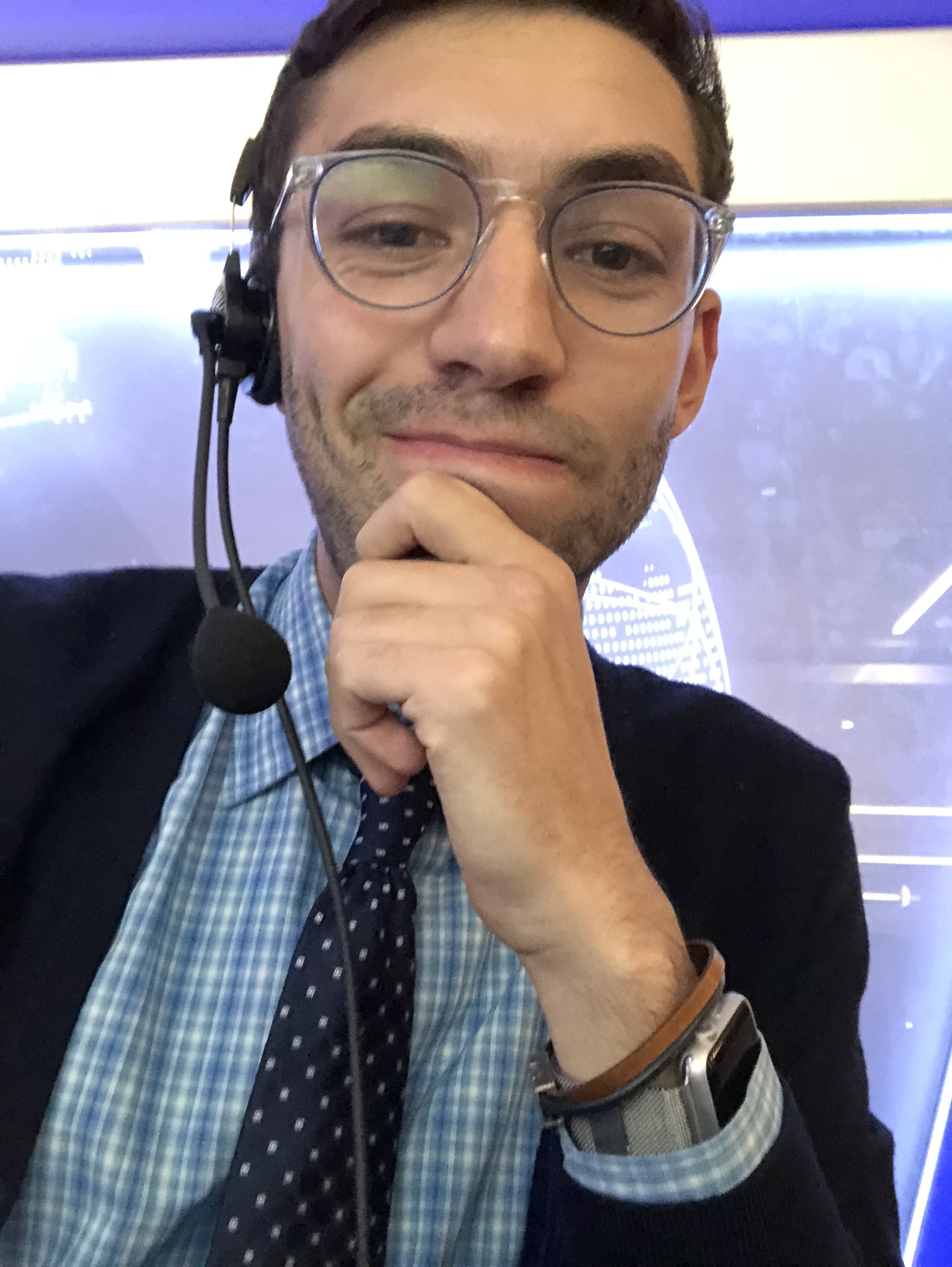At the Heart of American Media
Jacob Gardenswartz, C’18, LPS’18, covers politics and law for MSNBC.
This fall, for the second time in two years, Jacob Gardenswartz, C’18, LPS’18, found himself at the center of activity during a contentious national election. In September, he began working as a production assistant and anchor producer for MSNBC’s “The Beat with Ari Melber,” and was on the job during the midterms on November 6.
Melber is MSNBC’s chief legal correspondent, and the show covers daily political news with a focus on the intersection of law and politics—so Gardenswartz’s plate is full these days.
“With everything going on right now,” he says, “whether it’s the Mueller investigation or the Florida recounts, it certainly seems like law and politics are pretty intertwined at the moment.”
A typical day begins with a meeting during which staff choose the topics to cover during the evening broadcast—“The Beat” airs Monday through Friday at 6:00 pm EST. Most days, he is responsible for producing content for one segment of each show. “I do research for that segment, write scripts, and help identify whom Ari should interview and the kind of questions he’ll ask,” he explains. “I also come up with the graphics or soundbites that we want to play.” While Melber is on the air, Gardenswartz is often the only member of the production team who’s in the studio with him to help in the event of late-breaking news.
It’s familiar territory for Gardenswartz. During the 2016 presidential contest, he was an undergraduate fellow with the Penn Program on Opinion Research and Election Studies (PORES), a program directed by John Lapinski, Robert A. Fox Leadership Professor of Political Science. PORES fellows study survey research, American elections, and statistics. Along with the other 2016 fellows, Gardenswartz applied what he’d learned in the classroom to on-site analysis of exit polls for NBC’s “Decision Desk.”
The experience gave Gardenswartz a taste of what it would be like to work in broadcast media. It also opened his eyes to the limits of polling: “I think Americans in general struggle to interpret polls,” he says. “The point of the poll is to tell you what’s happening at the present moment, so there really is not a lot of predictive value to them. But I remember thinking that as difficult an evening as that was—and I think anyone, no matter their political affiliation, would agree it was a very polarizing evening for the country—there’s no place I would rather have been than at the heart of American media, getting an opportunity to report on it right there.”
Gardenswartz says a colleague had warned him that working in a newsroom on Election Day can be boring, since typically there is little to report until the polls close. But things ramped up for him leading up to the midterms, when Democrats were poised to gain control of the House of Representatives, and he began reaching out to likely incoming chairs of key House committees to ask for comments about potential changes.
Politics and storytelling have always been two strong areas of interest for Gardenswartz, who grew up in San Diego. At Penn, he earned both a B.A. in communications from the College and a master of public administration through the Fels Institute of Government. “When I came to Penn I knew I wanted to write in some way,” he says. “I thought I might study political science with a minor in journalism. Then I found this communications and public service concentration, and it was perfect for me.”
In today’s highly charged political climate, choosing a career in journalism means not only embracing the field’s hectic pace and excitement, but also facing a number of unprecedented challenges, such as a growing distrust of the media.
“One of the reasons that broadcast journalism appeals to me is because I think viewers can form a connection with the journalists in front of them, just by seeing them and hearing their voices,” says Gardenswartz.
He adds that another challenge is discerning the difference between covering a story and amplifying a story. “I think there’s research coming out showing that in 2016, in particular, media organizations didn’t necessarily strike that balance correctly. On our show we think a lot about how to frame things in the right way. It’s definitely an interesting time to be in news and juggling some of these questions.”



